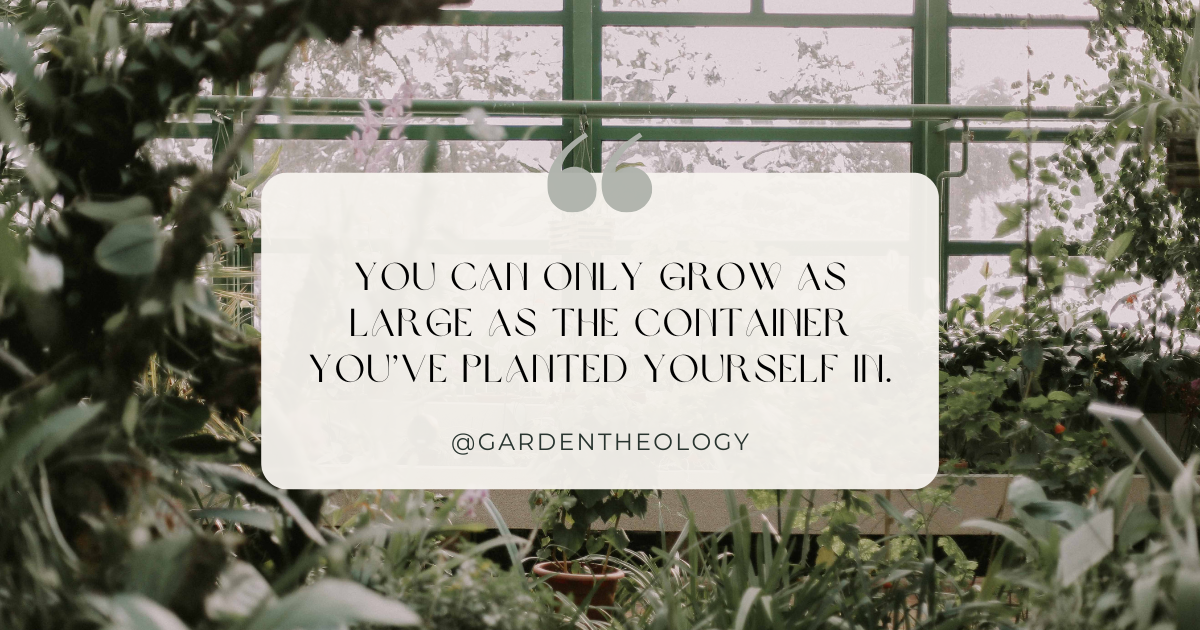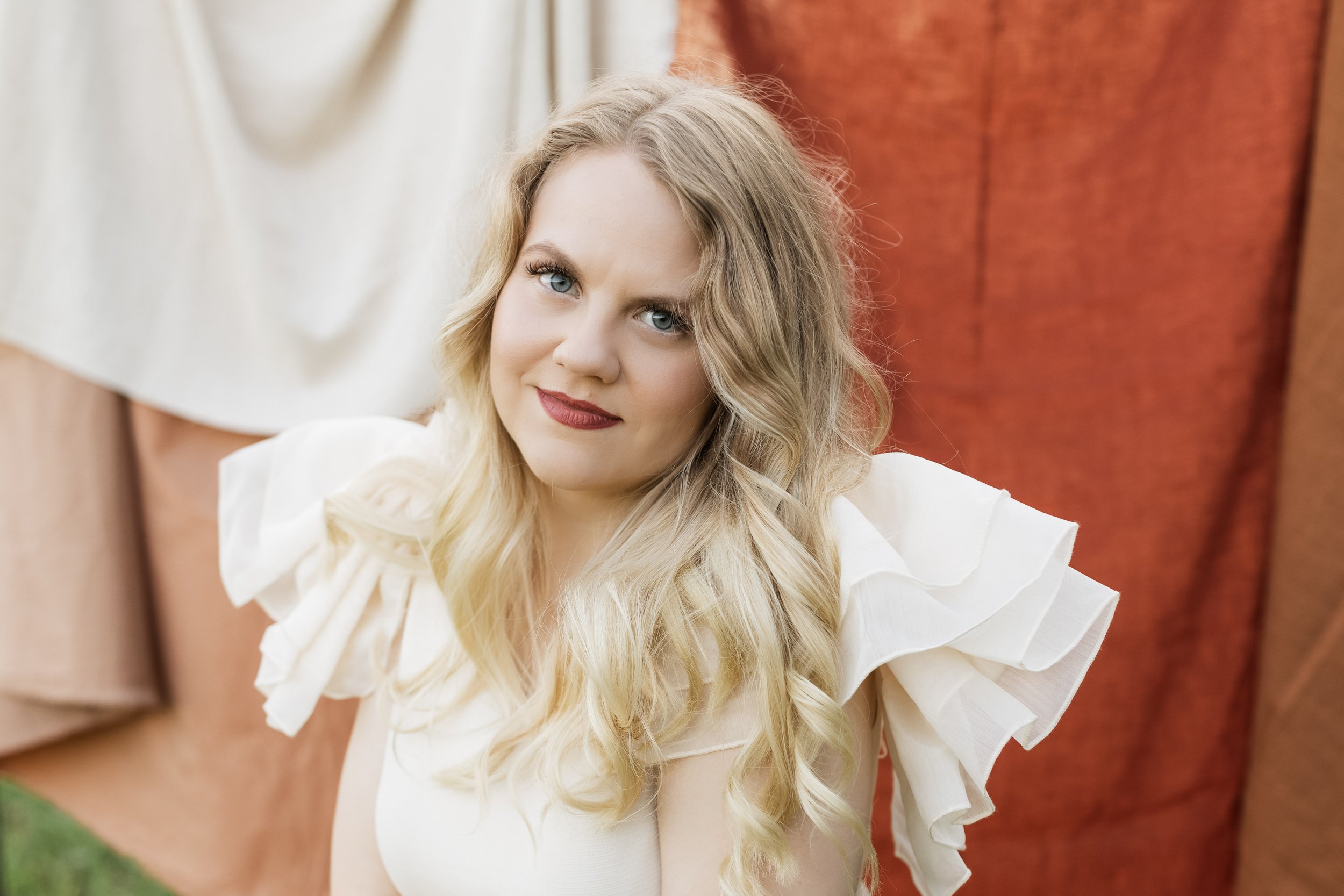The Problem with Being a Potted Plant
The inside of my house feels like a tropical greenhouse in the midst of summer. I have bird of paradise, monstera, rubber tree, majesty palm, succulents, and other random leafy things hanging in windows, basking on shelves, and lurking in corners. Every time I go to Home Depot, I always leave with another one. I’m running out of window space!
I love gardening indoors just as much as outdoor gardening, but there is a crucial difference. Plants are meant to grow outside, in the earth. It’s how they were made. It’s why garden soil and potting soil are different. Plants that are grown inside in unnatural conditions need extra nutrients and care to make them flourish.
My house plants were never meant to stay in my house, as much as I love being surrounded by them.
From Greenhouse to Garden
Growing indoors isn’t always a bad thing. The greenhouse can be a safe place to establish and care for new seedlings and tender shoots. I’ve walked through seasons where the Holy Spirit has led me to places of stillness, quiet, and refuge amid the storms of life. Greenhouses are ideal for starting seeds before spring or providing shelter to plants that need specific levels of humidity, sunlight, and warmth to grow. In the same way, sometimes God will tell you of plans to come, and He asks you to leave them in the greenhouse or keep them to yourself—interceding for them silently until their appointed time.
But there comes a time when you should take established seedlings and plant them in your garden so they can have more space and more nutrients.
My garden has a vermicomposting system where I feed earthworms my table scraps, and they live in my garden beds, making dark, nutrient-rich dirt. You can honestly grow anything if you take advantage of worms. They aerate the soil and provide the best growing conditions. Planting seeds in that soil has been so fun because literally anything and everything can grow in the right soil (read Matthew 13 for more on soil and sowing). And this kind of soil can’t generate itself in potted containers.
The hard part of moving from the greenhouse into the garden is that not every plant will make it. The added stress of different sunlight, pests, insects, wind, heavy rain, and a new location can kill off plants that are weaker. It’s a risk.
But you’ll never reach your potential if you don’t take some risks.
The Limit of Containers
You can’t live in the window of a greenhouse forever. The problem with being a potted plant is that you’re confined to the boundaries of your container.
You can only grow as large as the container you’ve planted yourself in.
Sometimes it can be hard to grow where God has planted you. This has often been my story. I am more comfortable being a potted plant, easily uprooted and replanted elsewhere. In the last five years, I have lived in four different states, in five different houses, had three different career switches, an ever-changing group of friends, and have been in and out of different churches—never staying still and never letting myself get too comfortable.
I’ve lived in a constant flight—running away from who God called me to be. Why? Continual fear of disappointment and failure. You can’t really fail at something if you never start it or stick around long enough to see it crumble. You can’t be disappointed when you’re busy running. No one can hurt you when you keep your distance.
When you’ve run as much as I have, for as long as I have, you get used to being out of breath, perpetually exhausted, only looking forward and never back.
A potted plant can be moved from shelf to shelf or from container to container. It has shallow roots. And limited room to grow. It has so much wasted potential.
In this season of my life, God is teaching me how to stay. He’s teaching me how to be rooted and established like Paul writes about in his letters.
“According to the riches of his glory he may grant you to be strengthened with power through his Spirit in your inner being, so that Christ may dwell in your hearts through faith—that you, being rooted and grounded in love, may have strength to comprehend with all the saints what is the breadth and length and height and depth, and to know the love of Christ that surpasses knowledge, that you may be filled with all the fullness of God. Now to him who is able to do far more abundantly than all that we ask or think, according to the power at work within us, to him be glory in the church and in Christ Jesus throughout all generations, forever and ever. Amen.”
This is one of my favorite passages of Scripture. We are called to be rooted and grounded in love, filled with the fullness of God. He grants us His Spirit, who strengthens us with power so that we can have greater measures of faith. A faith that understands the all-powerful love of God.
And it will take faith to do the things God has called you to do.
It’s been really hard for me to stay in one city, for an unknown amount of time, at a job I don’t love, for an unknown amount of time, not really sure where I am going, again, for an unknown amount of time. When I was calling the shots in my life, I had a lot of control. I knew exactly where I was going and when I was going to get there.
I was also really unhappy being in control.
Now that I’ve surrendered those plans to God, there’s a lot more mystery. And trust. It’s so scary to say to God “have your way,” hand over the map, and just wait until you get further instructions. But it’s what He asks of us. Because His thoughts are higher than our thoughts and His ways are not our ways (Isaiah 55).
You can trust in God’s plan for your life.
Growing with Others
When I let God plant me in one community, I am saying, yes God, you can grow me where you want me. I am saying yes to the mess of others. I am saying yes to accountability. I am saying yes to the possibility of disappointment and failure.
It’s lonely on the shelf. A potted plant can’t grow alongside other plants—or reap the benefits of growing in a community.
One thing I love about trees and nature is the network of mycelium working to connect all things underground, the mycorrhizal network. Have you heard of it?
It’s pretty amazing and awesome. Fungal threads connect all living plants in an ecosystem, helping trees communicate with each other, passing nutrients like nitrogen and carbon to plants in need, basically operating as the heartbeat of the forest. Older trees with deeper roots and more connections can help grow younger trees or those that don’t get enough sunlight. The New York Times did a cool story on it a few years back. And even though some scientists aren’t convinced of the social nature of trees, plants still benefit when grown together.
Take companion planting in vegetable gardens, for example. Planting flowers among your vegetables can attract pollinators and transfer pests to the flowers, rather than the vegetables. Nasturtiums in the garden can collect aphids so they’ll leave your tomatoes alone. Lavender can deter ravenous rabbits. Fragrant rosemary and garlic can deter insects, too.
It’s important to note, growing alongside others and sharing space can be painful. Your roots can get tangled, you can start competing for nutrients, and some plants around you might even be toxic.
But here’s the deal, God is the ultimate gardener. He knows exactly what you need. So if He’s planted you somewhere, it’s to grow you, not to wither you.
Dig in.
Become Rooted and Established
Thriving where God has placed you can be hard, especially if you feel the growing conditions aren’t optimal. I’ve found the best way to hear God’s voice in times of uncertainty is to ground myself in the Bible.
“Therefore, as you received Christ Jesus the Lord, so walk in him, rooted and built up in him and established in the faith, just as you were taught, abounding in thanksgiving.”
To be established in our faith, we have to walk alongside Jesus. We can’t race ahead or lag behind. We have to learn His pace and walk slowly, confidently.
Growing in a healthy church community is so important. If you’re not in community, you are not being held accountable. Often my dearest friends have spoken really hard things to me—but they were things I needed to hear. This is community at its best, building each other up and calling each other higher.
I know not all communities are created equal but leaving at the first sign of trouble? That’s a potted plant lifestyle. Giving up before you get in too deep? Potted plant. Exchanging your containers to best meet your current needs? Again, a sign you’re not rooted and established.
Friends, dare to let your roots grow deep. Dare to place your dreams in God’s hands and grow wildly among the wildflowers. The garden is calling.
ELISE LAKEY
Elise is a writer, artist, and photographer based out of Nashville, TN. She’s the founder of Garden Theology and seeks to help all gardeners-in-training come to their full purpose in God. When she’s not writing, you can find her playing in the dirt, snuggling her cats, or weaving tapestries.


